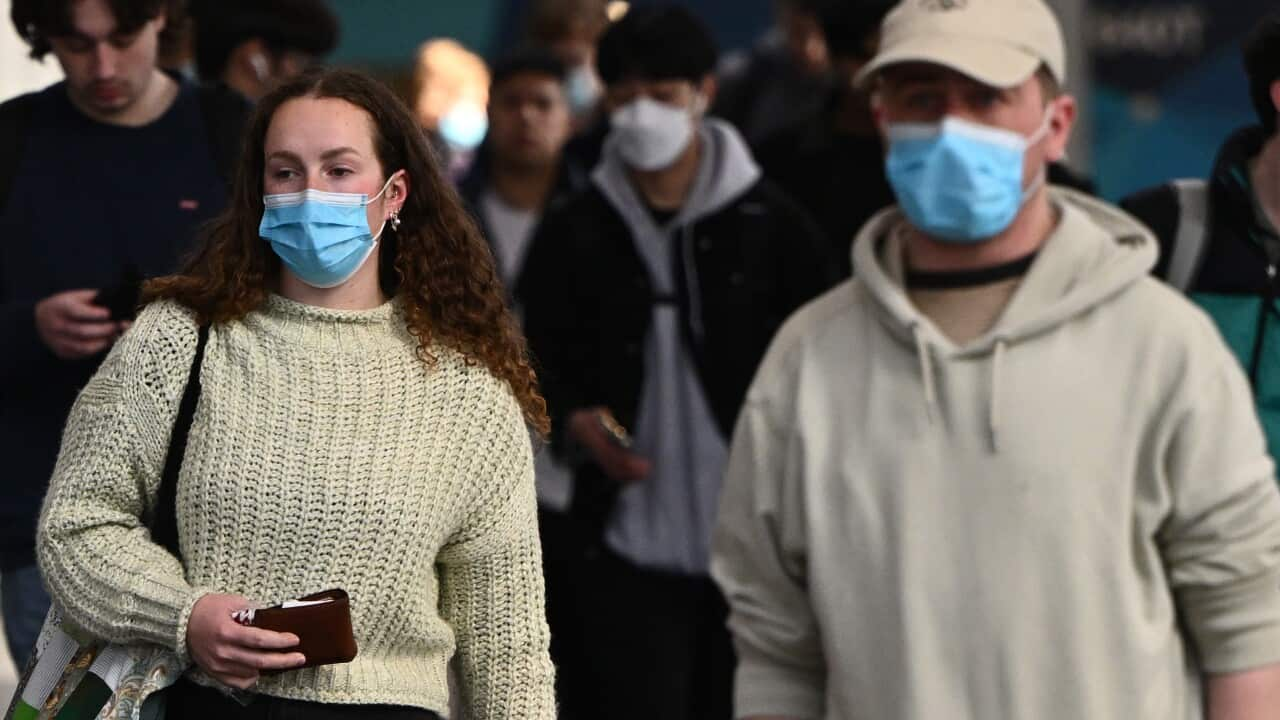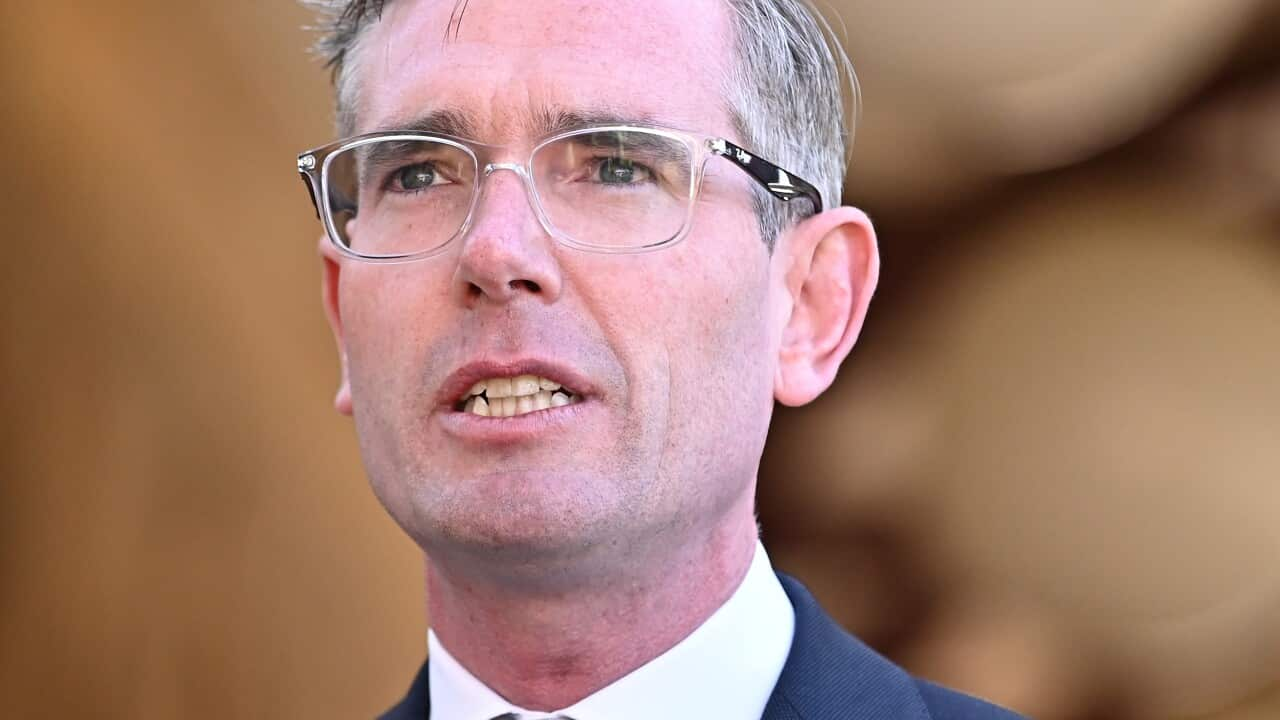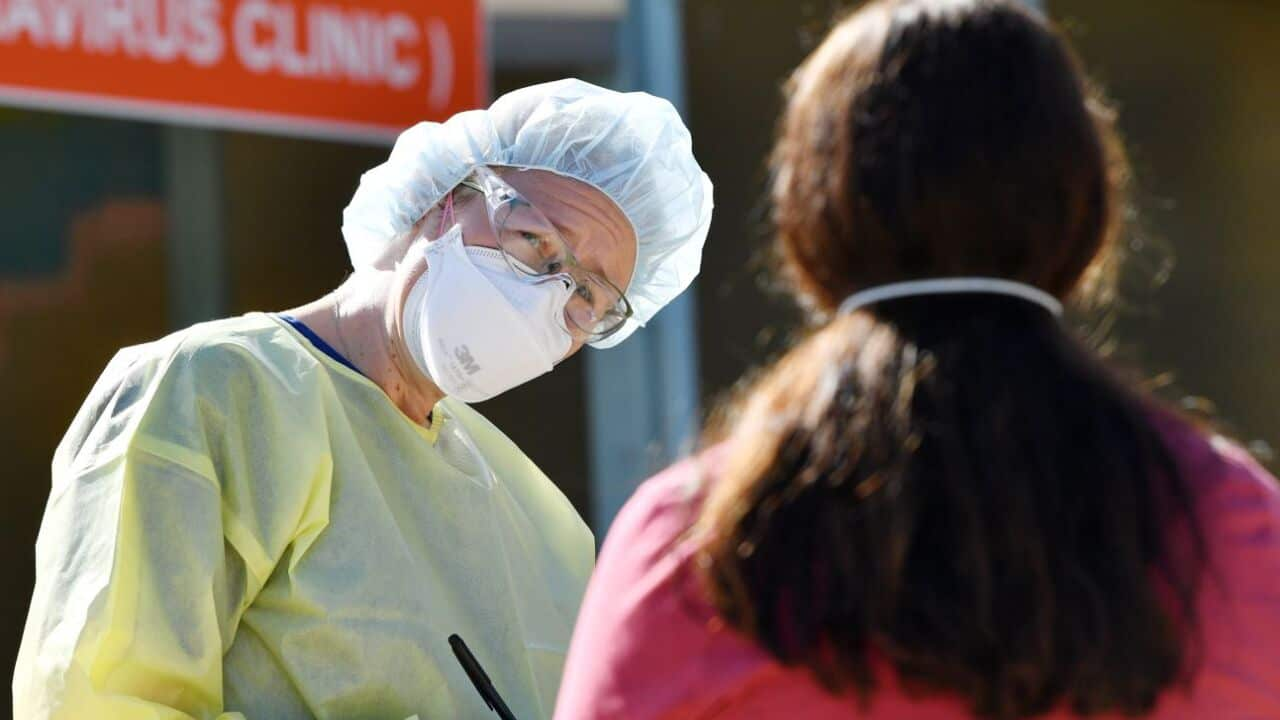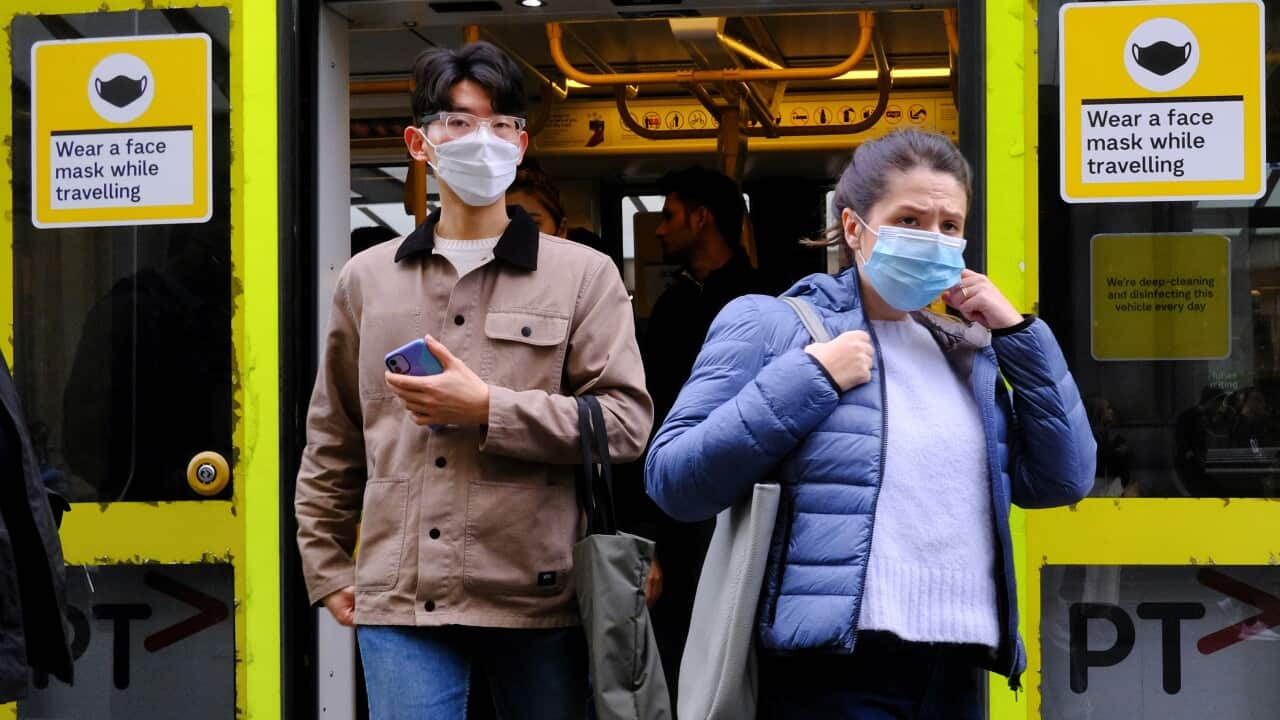Key Points
- NSW Premier Dominic Perrottet is calling for the mandatory isolation period for people with COVID-19 be reduced to five days.
- Experts say any change to the rules must be evidence-based.
People in Australia with COVID-19 must currently self- isolate for at least seven days from the date they test positive.
But this week, NSW Premier Dominic Perrottet flagged that he would suggest to national cabinet that .
"We should have a national approach," he said.
"That's more beneficial than states going their own way."
Mr Perrottet previously raised shortening the isolation period at last month's meeting, but with the latest Omicron wave yet to peak, it was not backed by advice from Chief Medical Officer Paul Kelly.
Despite that peak having now passed, Australia continues to report dozens of COVID-19 deaths each day, and more than 3,000 people with the virus remain in hospital.
Current isolation rules in Australia and around the world
While the mandatory self-isolation period across Australia for positive COVID cases is at least seven days, the rules about what to do once that week is up differs depending on the jurisdiction.
In every state and territory except the ACT, you can only leave self-isolation after seven days if you no longer have symptoms like a sore throat, runny nose, cough, or shortness of breath, or a fever. If you do, you must remain in isolation until after your symptoms have disappeared
While ACT residents can leave isolation on day seven if they still have symptoms, they must not return to work or enter high-risk settings and are advised to minimise their contact with other people until they’re gone.
Once your isolation is over in NSW and South Australia, you are required to wear a mask when talking or being close to other people and avoid visiting high-risk settings for a further three days.
If you're in Queensland, you must wear a mask for seven days after leaving isolation if you are indoors or if you are outdoors and can't stay physically distanced from others.
In the other states and territories, there are no post-isolation masking requirements.
In contrast, COVID-positive people in the United States are only "recommended" to isolate for at least five days, while those infected in England are advised to "try" to stay at home and avoid contact with other people for five days.
The case for keeping the isolation period the same
Professor Mike Toole, epidemiologist and associate principal research fellow at Melbourne's Burnet Institute, said new research shows that around 50 per cent of people with COVID-19 are still infectious after five days.
"At 10 days, almost no one is infectious, so it's between five and 10 days that you need to decide: what's the optimum period that people should keep themselves out of the community?," he told SBS News.
"I would say seven days at the moment, given the current evidence, is pretty good. Even though some people are still infectious after seven days, the majority are not."
Professor Toole said he sees "no reason" why Australia should take the risk of shortening the mandatory isolation period right now, especially when it would create more long COVID patients and further workforce shortages.
"We're not gaining anything by doing this until we have more evidence," he said.
"The basic premise at the moment should be to reduce transmission. In that way, we'll reduce hospitalisations and we'll reduce deaths. It's pretty simple."
The case for shortening it
It's vital that the impact isolation is currently having on transmission rates isn't overstated, according to Professor Catherine Bennett, chair in epidemiology at Victoria's Deakin University.
"It's going to be less than half the current infections that are in isolation, because a lot of people don't even know they have an infection," she told SBS News.
"It's not saying it doesn't help, but even the ones that do isolate for the seven days are often infectious before they go into isolation, so it doesn't cover their entire experience anyway."
Professor Bennett said the concern over the virus spreading further if the isolation period is shortened needs to be balanced with recognising that having to stay at home for a week could act as a disincentive for some to get tested for COVID-19.
"If people say, 'Well, if it was five days I could probably cope, seven days, I can't, I'm not going to test', it undermines everything," she said.
"Therefore how long the ones that do isolate is less important because you've got a bigger proportion of people that aren't engaged in testing or isolation at all."
Professor Bennett said whichever way the decision goes, it must be evidence-based.
"I think it's really important that it's backed up with strong advice about what to do the week after isolation, however long isolation is, and that people are really strongly encouraged not to go into high-risk settings, to avoid densely populated indoor areas, to wear masks," she said.
"Maybe that's going to be more important ... really reinforcing the need to be careful for longer."
Why immunocompromised people fear an isolation-free future
Australian Medical Association (AMA) vice president Dr Danielle McMullen said given the nature of the COVID-19, it's difficult to predict if or when mandatory isolation could be scrapped altogether.
But she said if it does happen, authorities must ensure public health measures remain in place to reduce the risk of illness, especially among vulnerable groups.
"We know there are a lot of people out there that have been really struggling with how open our society now is, and people who are more risk of severe illness from COVID-19 are feeling quite nervous at the moment and have been sort of putting themselves into isolation or really modifying their behaviour to reduce their risk of catching it," Dr McMullen told SBS News.
Sam Connor, president of People with Disability Australia, said those fears would worsen if mandatory isolation was removed altogether.
"Forty-one per cent of the population is at risk of severe disease or death from COVID," she told SBS News.
"That's all of the people with childhood cancers, it's all people with heart conditions, all of the people with obesity, and it's a really, really scary high number."
Ms Connor said she's especially concerned about the impact that all of the extra cases of long COVID are going to have on both individuals and the healthcare system.
"Although I love my community, I don't want to create more disabled people," she said.
This story has been updated to include information on rules regarding leaving isolation in Queensland.












